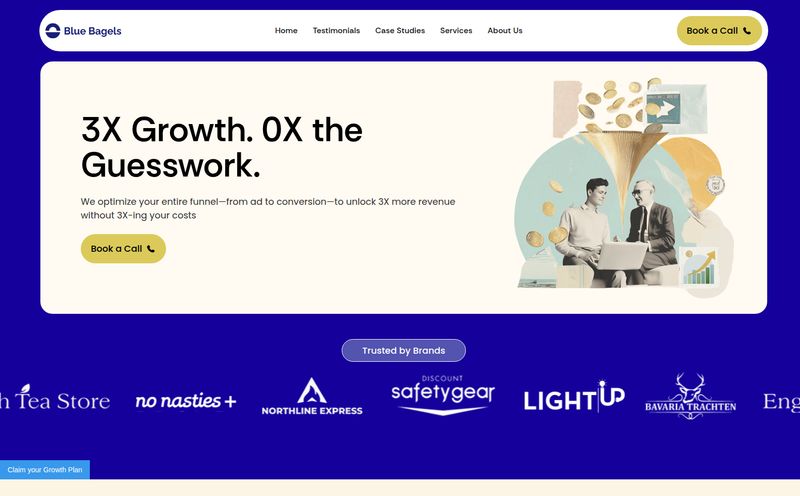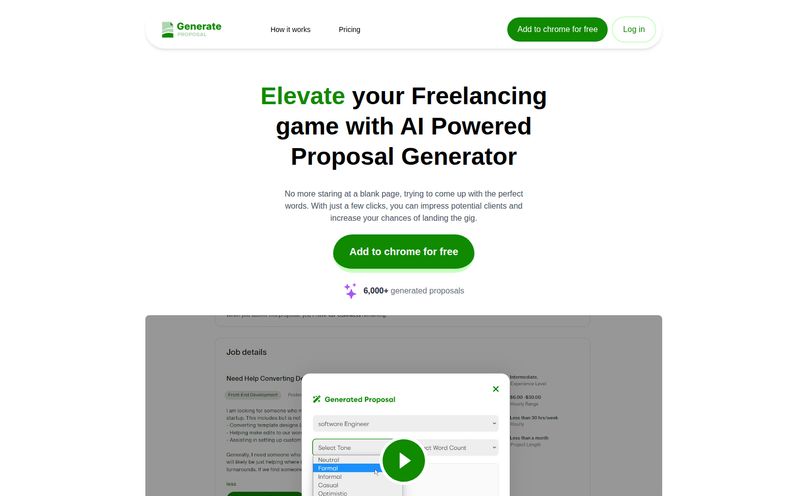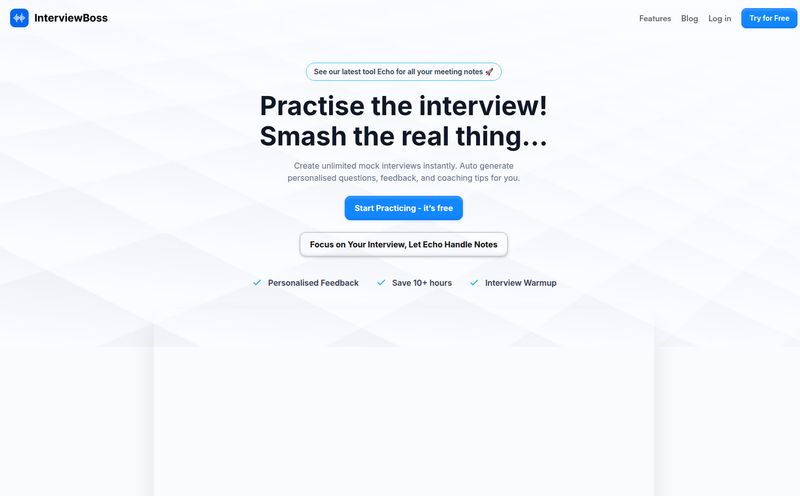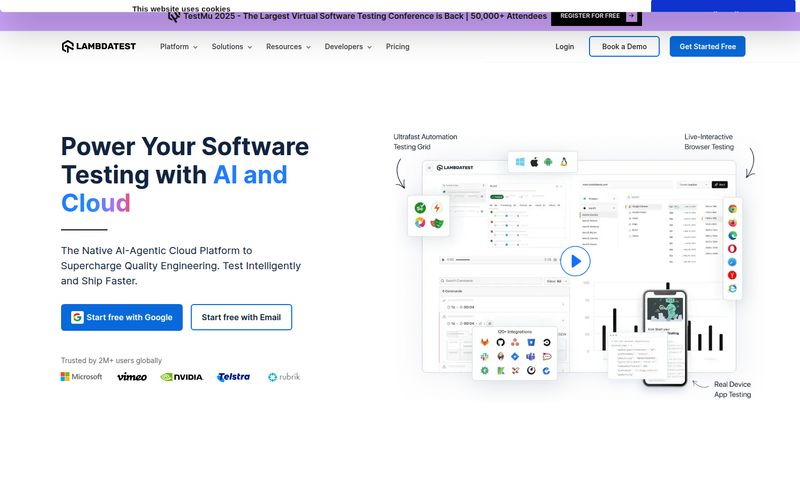Alright, let’s have a real chat. If you’re in B2B sales, you know the drill. Your pipeline is a beautiful, chaotic mess. Your CRM is probably one tab away from being declared a digital disaster zone, and you spend more time on data entry than you do actually, you know, selling. We’ve all been there, staring at a list of 50 opportunities and having absolutely no clue which one is a goldmine and which is a time-sucking black hole.
Every year, a new wave of tools promises to solve this. They claim to be the “next big thing” in sales tech. Most of them are just shinier versions of a spreadsheet. So when I heard about Pod, an “AI workspace for B2B sellers,” my professional skepticism kicked in. Another one? But I’ve been playing around with it, and I’ve got to admit… this one feels a little different. It’s less of a tool you have to log into and more of an AI sidekick that lives right alongside you.
So, is it just more hype, or is Pod the copilot we’ve been waiting for to help us navigate complex deals? Let’s get into it.
So What is Pod, Really?
Forget the fancy marketing speak for a second. In my experience, Pod is essentially an intelligence layer that sits on top of your sales process, with a heavy focus on integrating with Salesforce. It's not trying to replace your CRM; it's trying to make it smarter and make you faster. It pulls all the data from your deals, conversations, and calendar, and then uses AI to tell you what to do next. It’s designed for the folks in the trenches: Account Executives trying to hit quota, Sales Leaders who need a clear view of their team's pipeline, and RevOps teams who are tired of chasing people for updates.
Think of it like having a junior analyst and a sales coach whispering in your ear all day. It summarizes deal knowledge, suggests who you should talk to next, helps you write emails, and even automates updating your pipeline. That last one alone made my ears perk up.
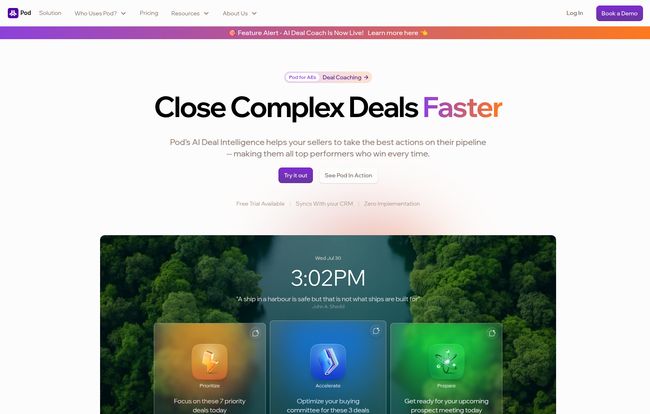
Visit Pod
My Favorite Pod Features (The Ones That Actually Save Time)
A feature list is just a list. What matters is what works in the real world. After kicking the tires, a few things really stood out to me as genuinely useful, not just tech for tech's sake.
Taming the Pipeline Beast with Smart Prioritization
This is the big one for me. Pod’s Pipeline Intelligence and Deal Prioritization isn't just a filter. It actively analyzes your deals and flags which ones have the highest chance of closing and which ones are at risk. It's like a GPS for your sales pipeline. Instead of starting your day with a massive, intimidating to-do list, Pod gives you a clear, prioritized set of actions. It’ll tell you, “Hey, this deal is stalling because you haven’t engaged with the decision-maker in two weeks,” or “This opportunity is heating up; here’s a good next step.” It cuts through the noise. Massive time saver.
An AI Sales Coach That Isn't Just a Glorified Clippy
Remember that annoying paperclip from old-school Microsoft Word? Yeah, most “AI coaches” feel like that. Useless interruptions. Pod is a bit more refined. Its AI Sales Coach gives you pre-meeting briefings that are actually helpful, summarizing the key players, the deal history, and potential talking points. It also has a fascinating Contact Sentiment Analysis feature, which tries to gauge how your contacts are feeling based on communication patterns. It's not foolproof, of course—AI can’t read minds—but it’s a surprisingly useful gut check before you hop on a call.
Saying Goodbye to Manual Data Entry (Mostly)
I loathe updating the CRM. Every sales rep does. It's the bane of our existence. Pod’s promise of automating deal tracking and data entry is a powerful hook. It syncs with Salesforce to keep records updated based on your meetings and emails. The Email Assistant can help you draft follow-ups and outreach, which is a nice touch. Now, is it 100% hands-off? No. You still need to oversee it. You’re the pilot. But it takes care of so much of the administrative grunt work, freeing you up to build relationships and close deals. That’s the whole point, isnt it?
Let's Talk Money: Pod Pricing Breakdown
Okay, the all-important question: what’s this going to cost? Pod's pricing is pretty straightforward, which I appreciate. They don’t hide it behind a dozen “Contact Us” forms, at least for their main plan.
| Plan | Price | Best For |
| Pro (Monthly) | $75 /user/month | Individual sellers or teams who want flexibility. |
| Pro (Yearly) | $65 /user/month | Sellers and teams committed to the platform and looking to save a bit. |
| Business | Custom Pricing | Larger sales organizations needing advanced features like team onboarding, unlimited integrations, and dedicated support. |
At $65 or $75 a month, you have to ask yourself: is it worth it? In my opinion, if it helps you close just one extra medium-sized deal a year that you otherwise would have lost, it’s paid for itself several times over. If it saves you 5-10 hours of admin work a month, the value is clearly there. It's priced as a professional tool for professionals who value their time.
The Not-So-Perfect Parts (Every Rose Has Its Thorn)
No tool is perfect, and it would be disingenuous to pretend Pod is. There are a few things you need to be aware of.
First, the big one: it’s built for Salesforce. If your team runs on HubSpot, Zoho, or something else, you might be out of luck for now, though they say you can join a waitlist. This is its greatest strength and its biggest limitation.
Second, there's an initial setup. You have to connect it to your CRM, your calendar, your email. It's not a huge lift, but it’s not instant magic either. You have to give it the data to learn from.
Finally, it’s still AI. It’s incredibly powerful, but it’s a tool to augment your skills, not replace them. You still need your sales intuition. If the AI suggests an action that feels completely wrong, you need the confidence to ignore it. Always trust but verify.
I’ve always said that the best sales tool is the one you actually use. Because of its smart integrations and focus on workflow, Pod is one of those tools that can easily become a daily habit rather than another forgotten subscription.
Conclusion: Is Pod Worth the Hype?
So, here’s my final take. Pod is one of the most promising AI sales tools I’ve seen in a while. It’s not a magic wand that will instantly triple your quota. Sorry to burst that bubble. But it is an incredibly effective productivity and intelligence partner for B2B sellers, especially those living and breathing in Salesforce.
It successfully tackles some of the most persistent problems in sales: pipeline chaos, administrative overload, and the guesswork of prioritization. It feels less like a rigid piece of software and more like a dynamic, helpful colleague.
If you're a sales professional or a team leader looking for an edge, and you're willing to embrace AI as a co-pilot, then Pod is absolutely worth a serious look. It might just be the thing that helps you close those complex deals, faster.
Frequently Asked Questions
1. Can I use Pod if I'm an individual salesperson?
Yes, absolutely. The 'Pro' plan is specifically designed for individual sellers who want to get an edge and improve their personal productivity and performance.
2. How deeply does Pod integrate with Salesforce?
Very deeply. It's designed as a Salesforce-first platform. It syncs with your objects, pipeline, and activities to provide real-time updates and analysis. The 'Business' plan even offers unlimited Salesforce object integration for more complex setups.
3. Is there a free trial available for Pod?
Pod's website encourages you to “Request a free demo” rather than offering a self-serve free trial. This is pretty common for B2B SaaS, as it allows them to tailor the demonstration to your specific needs and help with initial setup.
4. How is Pod different from other AI writing tools or CRM add-ons?
While it has features like an email assistant, Pod is more of a comprehensive workspace than a single-function tool. It combines pipeline intelligence, coaching, and automation into one unified experience, rather than just focusing on one piece of the sales process.
5. Is my sales data secure with Pod?
Security is a major concern with any tool that accesses CRM data. Pod states that they use industry-standard security practices to protect your data. For specific compliance questions, it's always best to reach out to their team directly during a demo.
6. What if my team doesn't use Salesforce?
Currently, Pod is primarily focused on Salesforce integration. According to their site, they have a waitlist for other CRMs. So if you're on a different platform, your best bet is to join that waitlist and check for future updates.
